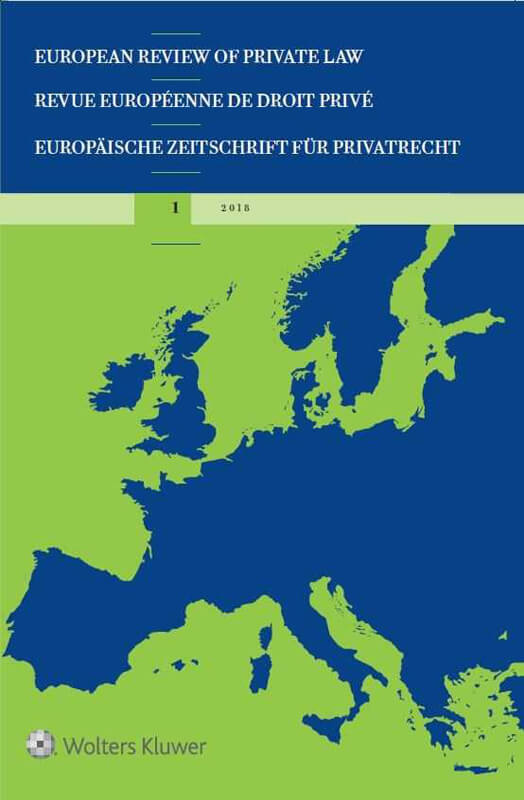Home > All journals > European Review of Private Law > 28(2) >

$25.00 - Rental (PDF) *
$49.00 - Article (PDF) *
Ole Hansen, Clement Salung Petersen, Vibe Ulfbeck
European Review of Private Law
Volume 28, Issue 2 (2020) pp. 333 – 374
https://doi.org/10.54648/erpl2020017
Abstract
Private governance can be defined as the phenomenon of private actors pursuing public goals and interests in the exercising of traditional state functions in the forms of rulemaking, implementation and dispute resolution. Private governance in these three ‘columns’ can have different sources and can be either ‘state driven’ or ‘market driven’. Whereas implications of private governance have to some extent been explored in public law, this article analyses the legal implications in private law and suggests a specific systematic approach. As examples, we focus on the supply chain as a market driven private governance system and the private provision of universal services as a state driven private governance system. The analysis shows how such private governance systems pose an immense challenge to the existing doctrines of private law and create considerable legal uncertainty. The analysis also leads to two more precise findings: (1) a private law analysis can benefit from focusing on the interplay between private governance in the three columns, and (2) the implications in private law seem to be of a different nature in the market driven as compared to the state driven private governance systems analysed.
Extract
